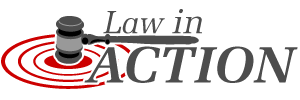
Whether you work for a private company or the government, it is important for you to know what the law can and can’t do for if problems arise at work.
It’s Monday, You’re Fired
Most employees I see who have been fired unfairly know about the At Will Employment Doctrine – the At Will Rule. The rule says that an employer can fire an employee for any reason or no reason. But does that rule apply to your situation?
Unemployment Appeals
If you have been fired from your job or even if you have quit your job for a good reason, you can file for unemployment benefits through the South Carolina Department of Employment and Workforce (DEW). Learn about how to file and what actions you need to take to ensure you are compensated during unemployment.
Proving Job Discrimination and the EEOC
Whether you believe you were fired, demoted, denied a promotion or harassed because of your disability, race, gender or age, you ultimately have to prove your case. What do you need to present when taking a discrimination case to court?
Is Your Employee Handbook Useless?
In 1987 the South Carolina Supreme Court ruled that Kathy Small’s handbook with Springs Industries was an enforceable contract. As an employee, you need to be informed whether your handbook is enforceable in court.
Group Action Vs. Open Door Complaints
Many companies have an Open Door Policy for employees to make confidential complaints about job issues so that management can give those concerns consideration and resolve them in everyone’s best interest. But is it always better to voice your complaints alone, or should you seek support from fellow co-workers?
Union Contracts
If you are in a unionized workplace, you have a union contract. In that union contract, you have the right to file a grievance if you are fired unfairly. That is an exception to the At Will Rule. Learn how being involved in a union can impact your role as an employee.
